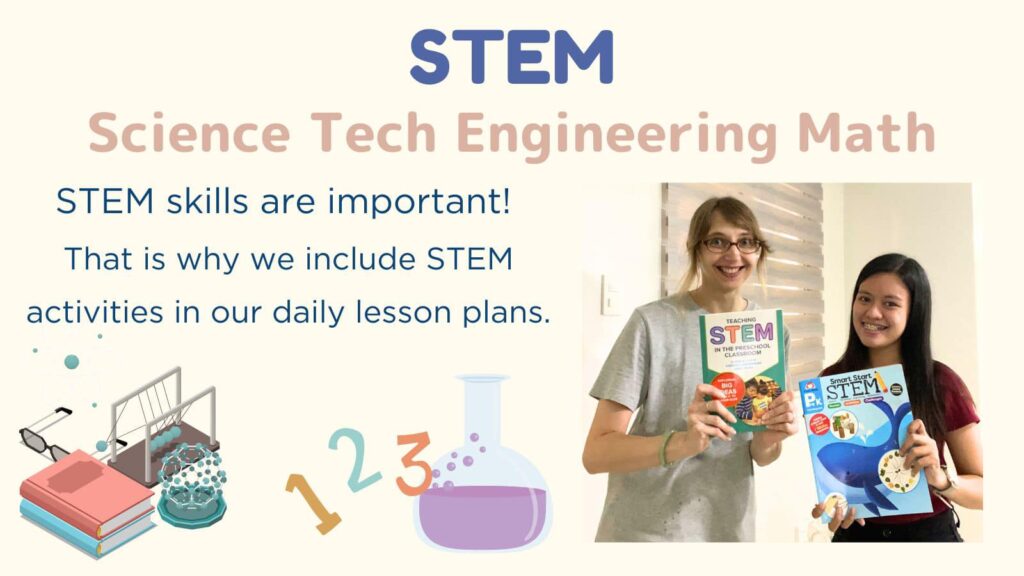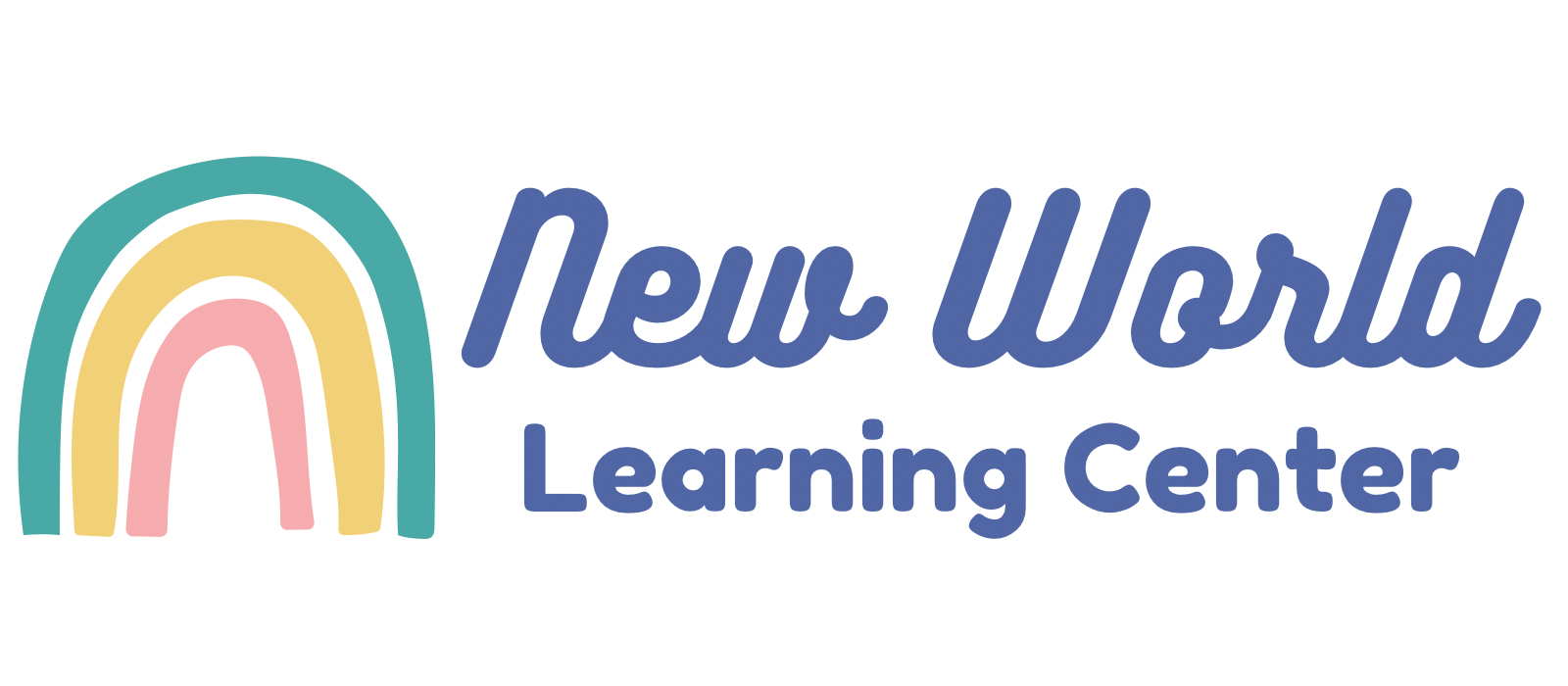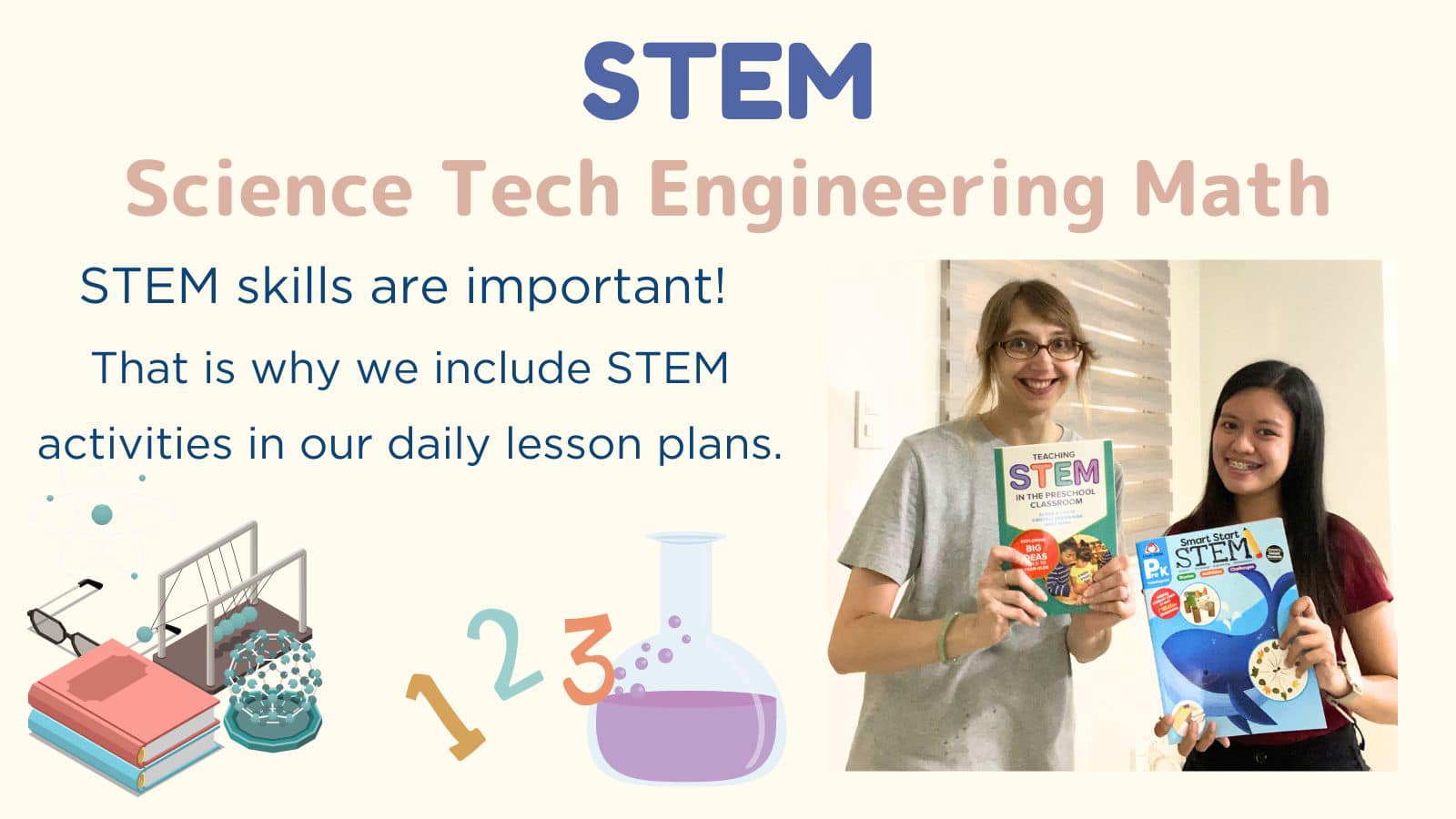STEM stands for Science, Technology, Engineering, and Mathematics. It’s a way of teaching and learning that focuses on these four subjects and how they work together in real-life situations.
At New World Learning Center, every session includes a STEM activity.
Here’s how STEM benefits young learners in Davao
- Motor Skills: STEM activities often require grasping, picking up, tearing, and more, which results in overall improvement of motor skills. Two-year olds learn to build with blocks. Older kids learn to measure, cut, and paste!
- Problem Solving: STEM helps kids become great and patient problem solvers. For example, they can create a fast rocket or build a strong bridge with recycled materials.
- Creativity: STEM lets kids use their imagination to invent new things. They can build cool structures with simple materials or create their own airplanes that fly!
- Teamwork: STEM activities are often done in a group. Working together, kids learn to share ideas and work as a team. Cooperation is an important life skill.
- Everyday Skills: STEM skills are important for everyday life. For example, understanding shapes helps when cutting food or making crafts, and counting helps when sharing toys with friends.
- Getting Ready for School: STEM helps kids get ready for kindergarten or first grade. It makes learning fun and gets them used to thinking, experimenting, and trying new things.
We encourage the parents of Davao to turn off their TVs and devices at home, and try something challenging for their children! Our STEM activities are sure to keep your child engaged, having fun, and most importantly- ready for a future of learning!

Science, technology, engineering, and mathematics - Wikipedia


